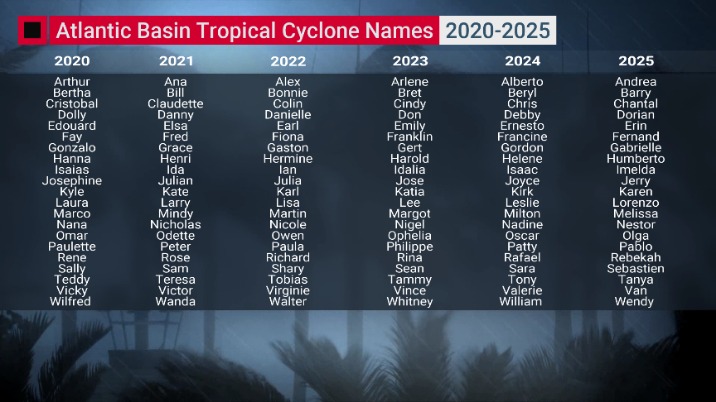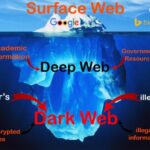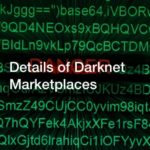Understanding Dark Web Market Links
The dark web is a hidden part of the internet that requires specific tools and awareness to access. Within this concealed environment, dark web market links serve as gateways to various clandestine marketplaces where illegal goods and services are traded. Understanding how these links function and their significance is essential for anyone interested in the complexities of the dark web. These links often have a unique structure, typically ending with a .onion extension, designed to obscure the destinations they lead to. For example, the dark web market links found on different hidden sites help users navigate through the various platforms securely. Exploring a sample dark web marketplace, such as this one, can provide insight into the vast and often anonymous nature of online illicit transactions. Knowing how to identify and access these links is crucial for researchers, cybersecurity professionals, and law enforcement agencies aiming to understand or monitor dark web activities.
Definition and Characteristics of Dark Web Market Links
The dark web is a hidden part of the internet that requires specific software and configurations to access. Within this concealed realm, dark web market links serve as gateways to various online marketplaces that often involve illegal or illicit activities. These links are unique URLs that direct users to marketplace pages, enabling transactions that may involve drugs, stolen data, or counterfeit products. Understanding these links is crucial for cybersecurity professionals, law enforcement agencies, and internet users aiming to recognize potential threats or maintain safety online.
Dark web market links are characterized by their distinctive structure, typically ending with the “.onion” suffix, which signifies their operation via the Tor network. These links are intentionally obscured to prevent easy detection and to provide anonymity for both buyers and sellers. The URLs are often complex strings of random characters, making them difficult to memorize and increasing their resistance to detection by automated tools. Because of their anonymous nature, dark web market links are frequently used to facilitate illegal transactions, although some legitimate activities also occur within the dark web.
These links are crucial components of the dark web ecosystem, functioning as entry points to marketplaces that operate outside the conventional internet’s regulatory framework. The unpredictable and secretive nature of dark web market links makes them challenging to monitor and regulate. Awareness of their defining characteristics can help in identifying potential threats and understanding the environment in which illegal activities are conducted.
How Dark Web Market Links Are Accessed
The dark web is an hidden part of the internet that requires special tools and knowledge to access. Among its features are dark web market links, which serve as gateways to various anonymous marketplaces offering a range of products and services. These links are typically not accessible through standard search engines and require users to use specialized browsers to navigate securely and privately. Accessing dark web market links involves downloading and configuring software such as Tor, which anonymizes user identities and encrypts internet traffic, making it difficult to trace activities.
Once the appropriate tools are set up, users can locate dark web market links through various underground forums and communities where such addresses are shared. These links are often embedded within encrypted messages or hidden behind layers of obfuscation to prevent detection. To access a dark web market link, users usually need to copy the address into their Tor browser’s address bar, which then directs them to the specific marketplace or resource. This process is designed to ensure user anonymity and protect privacy while browsing.
It is important to recognize that navigating the dark web carries inherent risks, including exposure to illegal activities or malicious actors. Therefore, understanding how dark web market links are accessed and exercised caution when exploring this space is essential. Although these links are difficult to find without insider knowledge or community guidance, they are a fundamental aspect of the dark web’s structure, providing access to markets operating outside the reach of traditional authorities.
Types of Markets Operating Through Dark Web Links
Understanding dark web market links is essential for gaining insight into the structure and operation of illegal online marketplaces. These links serve as gateways to hidden platforms where a variety of illicit goods and services are exchanged. Often masked to prevent easy detection, dark web market links are typically accessed through specialized anonymity-preserving networks, making monitoring and regulation challenging.
There are several types of markets operating through dark web links, each catering to different categories of illicit activity. Some marketplaces are general, offering a broad range of products including drugs, counterfeit documents, and stolen data. Others are specialized, focusing exclusively on particular items such as weapons or hacking services. The design of these markets usually involves secure registration and anonymous transactions, with dark web market links acting as crucial access points for users seeking to navigate these concealed platforms.
The operation of these markets relies heavily on obscured links to maintain secrecy and evade law enforcement efforts. Market operators frequently update and distribute new dark web market links to preserve accessibility for their users and avoid shutdowns. The structure is often decentralized, with multiple links and entry points, which complicates efforts to shut down illegal activities online. Understanding these links and the types of markets they connect to is vital for developing effective strategies to combat cybercrime and protect digital environments.
- Marketplace have built out their professional operations across the darknet.
- “They show an affluent lifestyle with expensive apartments, luxury brands, but with a touch of illicit intrigue.” Many of Telegram’s Russian drug bloggers are most likely sponsored by new darknet drug shops.
- There have been no official announcements from the Apollon administration team to counter or confirm any of the above claims.
- At the same time, the cybercriminal community experienced two waves of DDoS attacks.
- The veracity of the information posted is unclear and could easily be falsified.
- On Friday the 13th of January, the WayAway team hacked Solaris, taking advantage of a weakness in its coding, and shut it down.
Common Features of Dark Web Market Links
Dark web market links share several common features that distinguish them from regular websites, primarily due to the unique environment in which they operate. These links are typically found on the hidden part of the internet, accessed through specialized browsers that prioritize anonymity and security. Many dark web market links employ complex URL structures with random or semi-random strings of characters, making them difficult to predict or stumble upon accidentally. For instance, a dark web marketplace might be accessible via a link similar to this marketplace, which showcases such intricate URL patterns. These links are often designed to be transient or reset periodically to evade detection or shutdown by authorities. Additionally, many dark web site links include encrypted or obfuscated components to further safeguard the site’s hosting servers and users’ identities, making them a central feature of the shadowy marketplaces that flourish in the hidden web.
Secure and Anonymized Access Methods
Dark web market links are designed to facilitate the anonymous and secure exchange of goods and services across hidden parts of the internet. These links typically have distinctive features that distinguish them from regular web URLs, often utilizing the “.onion” domain suffix to indicate access through the Tor network. Due to the sensitive and clandestine nature of these marketplaces, specific security and anonymity measures are embedded within their infrastructure to protect both users and operators.
Common features of dark web market links include:
- Hidden Service Domains: Most dark web market links use unique cryptographic addresses ending with “.onion,” which are not accessible through standard browsers and require specialized software like Tor to access.
- Encryption and Anonymity: These links are part of encrypted networks that ensure both user and server identities are concealed, providing a layer of privacy necessary for illegal and confidential activities.
- Secure Access Methods: Access to markets via these links is often secured through multi-layered encryption, including onion routing, which directs traffic through multiple relays to obscure origins.
- Authentication Protocols: Many sites require login credentials or digital tokens to ensure that only authorized users can access certain sections, adding further security.
- Encrypted Communication Channels: Buyers and sellers typically communicate through encrypted messaging platforms integrated within the marketplaces, protecting their conversations from interception.
Regarding secure and anonymized access methods, the two primary techniques involve the use of the Tor network and VPNs. The Tor network acts as a gateway, routing internet traffic through a series of relays to anonymize user identities and locations. VPNs are sometimes used additionally to obscure IP addresses before connecting to the Tor network, enhancing privacy. These methods, combined with the inherent encryption of dark web sites, facilitate a high level of security and anonymity, which is essential for maintaining the operations of these markets and safeguarding their users from detection and surveillance.
Use of Cryptocurrencies for Transactions
The dark web hosts a variety of marketplaces that facilitate the exchange of goods and services not typically available through conventional channels. One common feature of dark web market links is their reliance on specialized access methods, often requiring specific software like Tor to ensure anonymity and privacy for users. These links typically have a unique structure, usually ending with the “.onion” domain, which helps conceal their physical location and prevent direct tracing. Navigating these links often involves a layered approach, with security measures in place to maintain confidentiality and protect both buyers and sellers. Some of these marketplaces, accessible through unique dark web market links, serve as hubs for a wide range of illicit and legal activities, all within a carefully controlled environment designed to minimize detection.
Cryptocurrencies are the primary mode of transaction within dark web markets due to their decentralized and pseudonymous nature. Digital currencies such as Bitcoin and other privacy-focused coins enable users to conduct transactions without revealing their personal identities, thus maintaining a degree of anonymity. The use of cryptocurrencies helps prevent the tracing of funds back to individuals, which is crucial in environments where legal and security concerns are paramount. Market operators often facilitate the process by providing integrated payment systems that streamline transactions, making it easier for users to buy and sell goods securely. The combination of specialized market links and cryptocurrency payments creates a resilient ecosystem that sustains dark web marketplaces despite law enforcement efforts to shut them down.
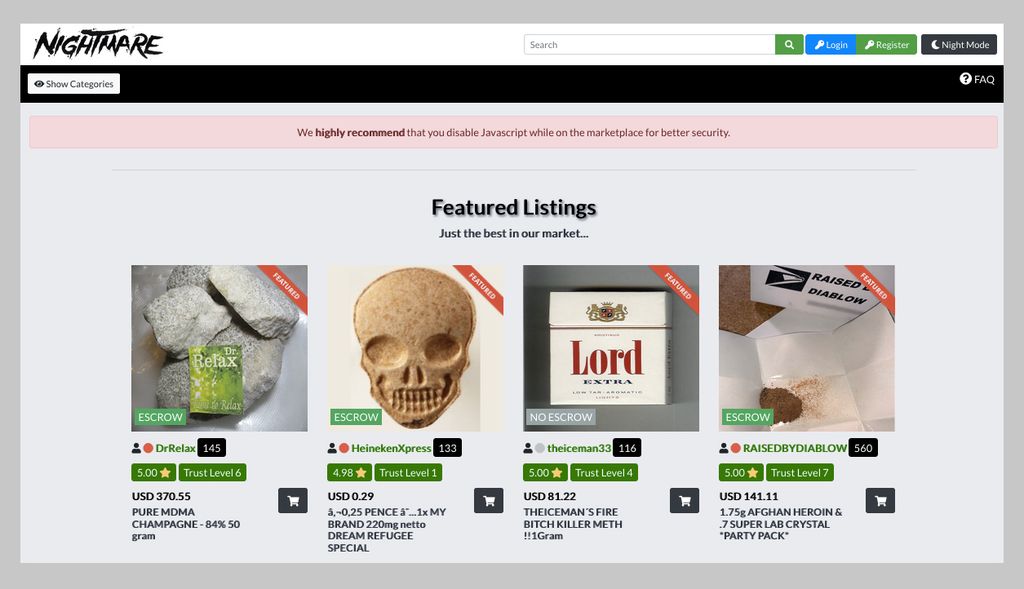
Listings of Illegal Goods and Services
Dark web market links are gateways to clandestine online marketplaces that facilitate the exchange of illegal goods and services. These links typically point to hidden service websites hosted on the Tor network, ensuring anonymity for both buyers and sellers. Such sites often feature a user-friendly interface, categorized listings, and secure transaction methods, all designed to maintain the concealment of their operations. The listings on these marketplaces can include a wide range of illegal items, from controlled substances and counterfeit currencies to stolen data and hacking tools.
One of the most common features of dark web market links is their specialized search and filtering capabilities, allowing users to quickly find specific products or services, such as weapons, illicit medications, or illegal digital content. These sites also tend to incorporate robust security measures, including encrypted communication channels, escrow payment systems, and anonymous registration processes, to reduce risks associated with illegal transactions. Additionally, market links often use multiple layers of obfuscation to evade detection by authorities, which complicates efforts to shut them down.
Listings of illegal goods and services on these dark web sites are typically organized into clearly defined categories, making it easier for users to navigate the platform. The descriptions often contain coded language or slang to evade search engine detection, and many listings include reviews or ratings to establish credibility within the community. This structure not only facilitates illegal trade but also maintains a sense of trustworthiness among users. Despite ongoing law enforcement efforts, these markets persist due to their resilient architecture and the continuous proliferation of new dark web market links.
Strategies for Seller Verification and Trust Building
Dark web market links are specialized URLs that provide access to hidden marketplaces operating on encrypted networks, primarily the Tor network. These links often share common features that distinguish them from regular web addresses, such as a “.onion” domain extension and complex alphanumeric strings that serve as unique identifiers for each marketplace. Such links typically require users to navigate through anonymous browser environments to ensure privacy and security. Additionally, many dark web market links incorporate layered protections, including encryption protocols and proxy servers, to safeguard both buyers and sellers from detection and interference.
One of the key strategies for establishing trust and verifying sellers on dark web market links involves rigorous verification procedures. Trusted vendors often undergo identity checks through multiple layers of authentication, such as PGP encryption keys and reputation systems. Sellers who maintain consistent, positive feedback and transparent transaction histories tend to rank higher in credibility within these marketplaces. Establishing reliable communication channels and providing verifiable credentials also contribute to building confidence among potential buyers.
Trust building within dark web markets is largely dependent on reputation management, secure transaction protocols, and adherence to community standards. Sellers who consistently deliver quality products and transparently address customer concerns tend to foster a strong reputation, which is essential given the anonymous nature of these platforms. Many successful vendors utilize encrypted messaging and escrow services to secure transactions and minimize risks, thereby enhancing overall trust within the marketplace ecosystem. As a result, diligent vetting and transparent operations are fundamental components for vendors aiming to establish longevity and credibility in these hidden online spaces.
Categories of Dark Web Market Links
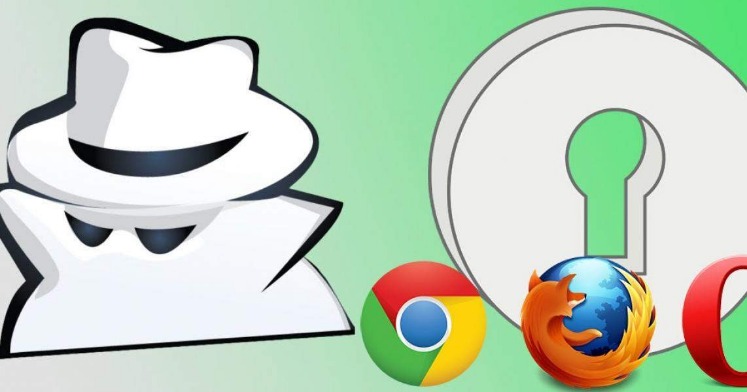
The dark web is a complex and often hidden part of the internet that hosts a variety of online marketplaces. These marketplaces can be categorized based on the types of products and services they offer, ranging from legal to illegal activities. Understanding the different categories of dark web market links is essential for navigating this shadowy environment safely and responsibly. Some links lead to markets specializing in digital goods, while others focus on illicit items. For example, dark web market links often serve as gateways to such diverse marketplaces.
Markets for Stolen Data and Credentials
The dark web hosts a wide array of market links that facilitate illegal activities, ranging from the sale of illicit goods to stolen data. These markets operate anonymously, making it challenging for law enforcement to track transactions and identify perpetrators. One prominent category within these dark web markets is platforms that specialize in selling stolen data and credentials, which are highly sought after by cybercriminals for various malicious purposes. These markets often feature listings for compromised financial accounts, personal identification information, and login details for various online services.
Dark web market links dedicated to stolen data have become a significant concern for cybersecurity professionals and law enforcement agencies. Such markets are often divided into different sections or categories based on the type of information offered, including credit card details, login credentials, and personal data. The ease of access and the anonymity provided by the dark web allow hackers and criminals to buy and sell stolen information swiftly and discreetly. These markets serve as hubs for the trade of illegally obtained data, fueling a cycle of cybercrime that impacts individuals, businesses, and governments alike.
In addition to data markets, there are numerous specialized platforms that sell various illegal goods, but those dealing with stolen data and credentials are particularly prevalent because of the high demand and profitability. These sites often operate in the shadows, using multiple layers of security and obfuscation to evade detection. The availability of dark web market links to these illegal services highlights the importance of strong cybersecurity practices and vigilance against potential breaches. Users and organizations must remain aware of the risks posed by these markets and take proactive steps to safeguard their digital assets.
Markets Selling Malware and Exploits
The dark web hosts a variety of markets that facilitate illicit activities by providing consumers and vendors with a range of illegal products and services. These markets are often organized into different categories based on the type of goods or services offered, with some specializing in specific areas such as counterfeit items, drugs, or stolen data. A prominent category includes markets selling malware and exploits, which enable cybercriminals to compromise systems and facilitate other illegal activities.
Markets that sell malware and exploits serve as hubs for cybercriminals looking to acquire malicious tools to breach security measures, steal sensitive information, or conduct attacks like ransomware, banking Trojans, or spyware deployments. These platforms often operate under the radar, providing access to a variety of malicious software, hacking exploits, and vulnerabilities targeting specific hardware or software platforms. For example, cybercriminals can purchase exploit kits or remote access tools to infiltrate networks and exfiltrate data efficiently.
In addition to malware, these markets also feature listings for stolen data, including compromised login credentials, credit card information, or personal identities, further fueling cybercrime activities. The availability of exploits and malware on dark web market links illustrates the evolving landscape of cyber threats, underscoring the importance for security professionals and individuals to remain vigilant and implement robust cybersecurity measures to prevent exploitation. The proliferation of such markets emphasizes the critical need for continuous cybersecurity awareness and defense strategies to mitigate the risks posed by these illicit platforms.
Markets Offering Fake Identification and Documents
Dark web market links encompass a wide range of illicit services and products available on hidden parts of the internet. These links often direct users to platforms where illegal activities are facilitated, including the sale of counterfeit goods, stolen data, and fraudulent documentation. Among these, markets offering fake identification and documents have become increasingly prevalent, catering to individuals seeking to bypass legal identification processes or commit identity fraud.
Dark web markets that deal with fake identification and documents can be categorized into several types based on their scope and the services they provide:
- Fake ID Vendors: These marketplaces specialize in the sale of counterfeit driver’s licenses, passports, birth certificates, and other official identification documents. They often claim to produce high-quality replicas that can pass standard verification checks.
- Document Forgery Services: These platforms offer customized services to create forged legal documents such as diplomas, visas, and social security cards. They may include detailed transaction processes and guarantees for authenticity.
- Data and Personal Information Markets: These markets sell stolen personal data, which can be used to generate fake IDs or facilitate identity theft. They often bundle personal info with counterfeit documents for complete identity fraud solutions.
- Credential Resale Markets: These sites focus on reselling compromised credentials like login details for financial or government accounts, which can be used to augment fake identification schemes or access unauthorized services.
Buyers often find these services through dark web market links, where they can browse listings, place orders, and communicate securely. Due to the illegal nature of these activities, law enforcement continuously monitors these markets to dismantle operations and protect public safety. It is crucial to be aware of the risks and legal implications associated with accessing or engaging in transactions involving fake IDs and documents on such platforms.
Drug and Substance Trafficking Market Links
The dark web hosts a wide array of market links that facilitate various illicit activities, ranging from illegal goods to services that often operate outside the bounds of legal regulation. Among these, drug and substance trafficking markets are some of the most prominent and concerning categories, exploiting the anonymity provided by the dark web to connect buyers and sellers securely. These market links enable the exchange of narcotics, controlled substances, and other illicit consumables on a global scale, making enforcement and regulation particularly challenging.
Drug and substance trafficking market links typically consist of hidden marketplace platforms that function similar to legitimate e-commerce sites but are dedicated to illegal trade. They offer a wide range of substances, from recreational drugs to more dangerous and regulated chemicals, often with features such as anonymous transactions and encrypted communication to protect participants. These links allow buyers to browse products, read reviews, and make discreet purchases, all while remaining concealed from law enforcement authorities.
Operations within these markets are highly organized, with vendors employing various tactics to evade detection and build trust among buyers. These tactics include the use of pseudonymous identities, escrow services, and encrypted messaging. The ecosystem around these market links continues to evolve, with some platforms rising in prominence while others are shut down or infiltrated by authorities. Despite efforts to combat them, the availability of drug and substance trafficking market links remains a significant concern worldwide due to their ability to facilitate widespread illegal drug distribution.
Understanding the nature of these market links can provide insights into the scale and scope of dark web drug markets. Continuous monitoring and law enforcement strategies are essential to counteract their proliferation and to reduce the illegal trade that undermines public health and safety.
Risks Associated with Dark Web Market Links
The dark web hosts a variety of illicit markets where users can access a wide range of illegal products and services through specialized links. Engaging with dark web market links involves significant risks, including exposure to scams, malware, and legal repercussions. These links often lead to sites that are difficult to verify and carry the potential for financial loss or personal harm. For instance, accessing sites such as dark web market links can expose users to unregulated environments prone to fraudulent activities. It is crucial to exercise caution and understand the dangers associated with these links before attempting to navigate such sites.
Fraudulent Transactions and Scams
The dark web hosts a variety of marketplace links that are often associated with illegal activities, making it a risky environment for users. Engaging with dark web market links can expose individuals to significant dangers such as fraudulent transactions and scams. These sites frequently operate under anonymous conditions, which increases the likelihood of dishonest vendors or malicious actors attempting to deceive consumers. Users may encounter counterfeit or substandard products, or they may be tricked into paying for goods or services that are never delivered.
One of the primary risks associated with dark web market links is the potential for fraud. Many vendors on these platforms use fake profiles or unverified identities, making it difficult to distinguish trustworthy sellers from fraudulent ones. Consumers could be lured into making purchases through deceptive ads or false promises, only to find that their money has been stolen or that the items received are worthless. The lack of regulation and oversight in these markets further amplifies the risk of monetary loss and disappointment.
Scams are widespread within the dark web marketplace ecosystem. For instance, users might be redirected to malicious websites designed to steal personal and financial information once they click on suspicious links. Phishing scams can also occur when scammers impersonate legitimate sellers or platform administrators, convincing users to reveal sensitive data or transfer funds. The clandestine nature of these sites makes it challenging to seek legal recourse or recover lost funds, increasing the danger to anyone attempting to navigate or engage with dark web market links.
In summary, while dark web market links may seem like an avenue to access certain products or services, they come with substantial risks. Fraudulent transactions and scams are common and can result in financial loss, identity theft, and legal complications. It is crucial to exercise caution and maintain awareness of these dangers when encountering such links to protect oneself from potential harm. Staying informed and avoiding engagement with unverified or suspicious dark web sites is essential for personal safety and security.
Law Enforcement Takedown Efforts
The dark web has become a clandestine marketplace where users often access various illegal goods and services through specialized links. While these dark web market links provide anonymity and access to hidden marketplaces, they also pose significant risks, especially in terms of law enforcement intervention. Engaging with these links can lead to exposure to scams, malware, and theft, making them highly dangerous for unwary users.
Law enforcement agencies worldwide actively monitor and target dark web market links to disrupt illegal activities. Their efforts include infiltrating markets, gathering intelligence, and executing takedown operations to shut down illicit marketplaces. These operations often result in the seizure of servers, arrest of operators, and removal of market links from the web. As a consequence, users who rely on these links to access illegal products risk losing their access when markets are taken down or compromised.
Dark web market links are inherently risky because they are constantly under threat of law enforcement actions. When a market is seized or shut down, the associated links become inactive, leaving users stranded and vulnerable. Furthermore, linking to or sharing these dark web market links can inadvertently lead to legal repercussions, as law enforcement may track and identify individuals involved in illicit transactions. Users should exercise extreme caution and consider the dangers associated with accessing or distributing these links to avoid severe legal and security consequences.
Risks of Malware and Phishing Attacks
Engaging with dark web market links poses significant security risks, particularly related to malware and phishing attacks. These markets often host illicit transactions and are frequented by cybercriminals who exploit unsuspecting users. Accessing dark web market links increases the chance of inadvertently downloading harmful software that can compromise personal devices or steal sensitive information. Malware such as ransomware, keyloggers, or spyware can be concealed within seemingly legitimate marketplace pages, making it difficult for users to recognize threats. Additionally, phishing schemes are prevalent, where users are lured through fake links or deceptive interfaces designed to steal login credentials or financial data. Visiting dark web market links without proper safeguards can expose individuals to identity theft, financial loss, and persistent security breaches. Therefore, users should exercise extreme caution and maintain robust security measures when navigating such sites to minimize these inherent risks.
Impacts on Business and Consumer Security
Dark web market links pose significant risks to both businesses and consumers by facilitating access to illicit goods and services. These links often lead users to hidden marketplaces where illegal items such as drugs, stolen data, and counterfeit products are sold, creating a shadow economy with little oversight or regulation. Engaging with such links can inadvertently expose individuals and organizations to criminal activity, financial fraud, and cybersecurity threats.
One of the primary dangers associated with dark web market links is the potential for cyberattacks. Cybercriminals often use these platforms to distribute malware, phishing schemes, and other malicious tools that can compromise sensitive data. For businesses, clicking on or sharing these links can result in data breaches, intellectual property theft, and damage to reputation. Consumers who unknowingly access these marketplaces risk financial loss and identity theft, as their personal information may be targeted for exploitation.
Furthermore, the presence of dark web market links complicates efforts in maintaining supply chain security and regulatory compliance. Unauthorized transactions via these links can facilitate the circulation of counterfeit or unsafe products, posing risks to public health and safety. For organizations, inadvertently engaging with dark web links might also result in legal consequences if found complicit in illegal activities or failure to prevent illicit transactions.
It is crucial for businesses and consumers to stay vigilant and recognize the dangers linked to dark web market links. Implementing robust cybersecurity measures, educating staff and users about the risks, and avoiding suspicious or unknown links can mitigate potential harm. Understanding the implications of these hidden markets helps protect vital data, uphold legal standards, and safeguard overall security in today’s interconnected digital environment.
Detection and Monitoring of Dark Web Market Links
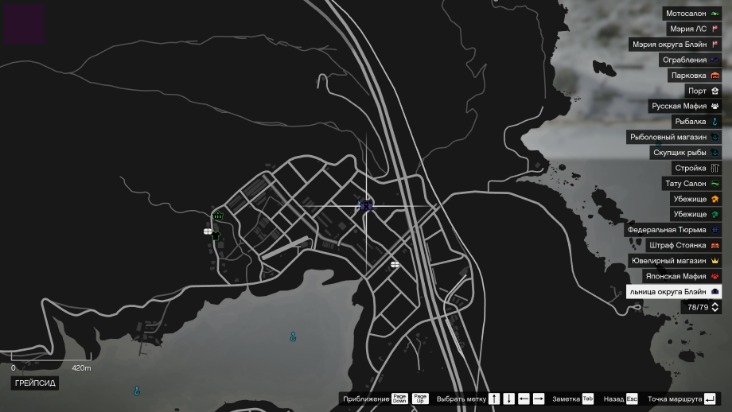
Detecting and monitoring dark web market links has become a crucial aspect of cybersecurity and law enforcement efforts. The hidden nature of the dark web makes it challenging to track illegal activities and prevent illicit transactions. By employing advanced tools and techniques, organizations can identify suspicious links and monitor their activity over time. For example, accessing dark web market links such as this prominent marketplace allows analysts to gather vital intelligence and stay ahead of potential threats. Effective detection and monitoring help disrupt illegal operations and protect both digital and physical communities from harm. Maintaining vigilance over dark web market links is essential for ongoing cybersecurity resilience and legal enforcement.
Techniques for Tracking Market Listings
Detecting and monitoring dark web market links is a critical component of cybersecurity and law enforcement efforts aimed at combating illegal activities. These markets often serve as hubs for illicit trade involving drugs, weapons, stolen data, and other unlawful goods. To effectively track and analyze these market listings, investigators employ a combination of advanced techniques and tools designed to identify patterns, gather intelligence, and disrupt illegal operations. Understanding these methods can help organizations strengthen their defenses against cyber threats and support law enforcement initiatives.
One of the primary techniques used in monitoring dark web market links is web scraping combined with automated crawling tools. These tools systematically scan dark web marketplaces, collecting data on new and existing listings. They focus on identifying keywords, common phrases, and specific structuring patterns associated with illegal transactions. By continuously monitoring these listings, analysts can detect emerging markets and track changes over time to anticipate criminal activity trends.
Another key approach is the use of sentiment analysis and keyword monitoring. By analyzing the language and terminology used in market listings, investigators can identify suspicious patterns indicative of illicit trade. This method helps in filtering relevant information from vast amounts of data, enabling targeted investigations. Additionally, examining the metadata associated with listings such as timestamps, pricing, and trader profiles can provide deeper insights into the market dynamics.
Advanced techniques also include the application of machine learning algorithms that are trained to recognize the characteristics of dark web market links. These algorithms can classify and predict the likelihood of a link being associated with illegal activity, thereby prioritizing investigative efforts. Furthermore, network analysis tools help in mapping connections between vendors, buyers, and marketplaces, revealing hidden networks involved in illegal trades.
Monitoring dark web market links requires collaboration across cybersecurity agencies, law enforcement, and private sector partners. Continuous surveillance combined with threat intelligence sharing can uncover operational details of various markets and assist in their shutdown. Overall, leveraging technology, data analysis, and collaborative efforts enhances the ability to detect and track these covert market links, providing vital intelligence to combat the proliferation of illegal activities on the dark web.
Role of Security Tools in Identifying Dark Web Activity
The detection and monitoring of dark web market links play a crucial role in cybersecurity efforts aimed at identifying illicit activities and safeguarding digital assets. These hidden marketplaces often serve as hubs for illegal trade, including drugs, weapons, and stolen data, making their observation vital for law enforcement and organizations alike. Effective monitoring involves advanced tools and techniques that can scan the dark web continuously, pinpointing emerging threats and illicit transactions.
Security tools are essential in detecting dark web market links, enabling analysts to track and understand emerging patterns indicative of criminal activity. These tools employ web crawling, data analysis, and machine learning algorithms to identify suspicious links and monitor their activity over time. By automating the process, organizations can stay ahead of threat actors who frequently change their links and operational methods to evade detection.
Dark web market links, such as onion sites, serve as gateways to these clandestine marketplaces. Monitoring these links allows security teams to gather intelligence on the vendors, products, and buyer activities that take place within these hidden networks. This intelligence is vital for preemptive actions and disrupting illegal trade operations. Continuous surveillance and analysis of dark web links help in understanding the evolving landscape and honing defensive strategies against cyber threats.
In conclusion, the role of security tools in detecting and monitoring dark web market links is indispensable in combating illicit online activities. Through persistent surveillance, advanced technology, and expert analysis, organizations and authorities can uncover hidden threats, gather critical intelligence, and take informed steps to protect digital ecosystems and public safety. Diligent monitoring of these dark web channels remains a cornerstone of modern cybersecurity defense strategies.
Best Practices for Businesses to Protect Against Dark Web Links
The detection and monitoring of dark web market links are crucial components of cybersecurity strategies for modern businesses. As malicious actors frequently utilize dark web platforms to trade stolen data, illicit goods, and malicious services, organizations must develop robust methods to identify and track these activities. Monitoring dark web links allows companies to gain early insights into potential threats, enabling proactive responses and mitigation efforts.
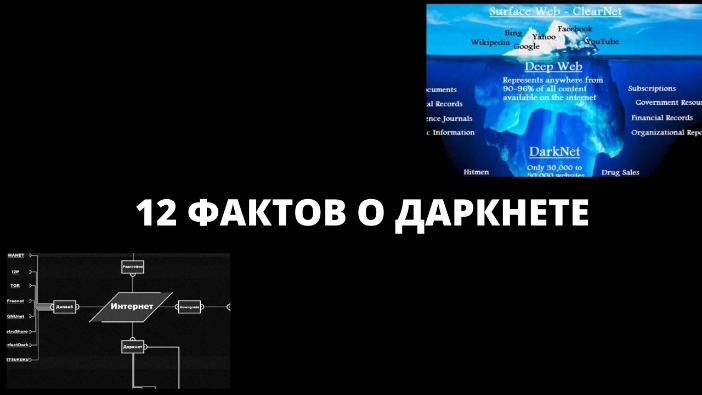
Implementing effective detection strategies involves leveraging specialized tools and threat intelligence services that scan dark web forums, marketplaces, and other hidden networks for references to your organization, products, or data. These tools utilize advanced algorithms to identify suspicious links or mentions that could indicate ongoing or planned malicious activities. Regularly updating these detection mechanisms ensures that businesses stay ahead of new tactics used by cybercriminals.
Best practices for protecting against dark web links include establishing comprehensive monitoring programs, educating staff about dark web threats, and developing incident response plans tailored to dark web discoveries. Collaborating with cybersecurity providers that offer dark web surveillance can significantly improve detection speed and accuracy. When suspicious links or activities are identified, swift action such as disabling affected accounts, enhancing security measures, and notifying relevant authorities is vital to prevent potential breaches.
By maintaining vigilant monitoring of dark web activities and understanding the landscape of dark web market links, organizations can better safeguard sensitive data and maintain their reputation. A proactive approach to detection and response minimizes exposure to the risks associated with dark web marketplaces and ensures a resilient security posture in an increasingly digital threat environment.
Legal and Ethical Considerations
The dark web presents a complex landscape where legal and ethical considerations are of utmost importance. Engaging with dark web market links requires awareness of the potential risks and responsibilities involved. It is essential to understand the legal boundaries surrounding such activities and to prioritize ethical conduct when navigating these hidden parts of the internet. Unauthorized access or participation in illegal transactions can have serious consequences, emphasizing the need for caution and adherence to applicable laws. For those exploring the dark web responsibly, ensuring they do not facilitate illegal activities is crucial. Exploring options such as reputable dark web markets, like this marketplace, can help mitigate some risks associated with illicit activities while maintaining a focus on ethical considerations.
Legal Risks of Interacting with Dark Web Market Links
Engaging with dark web market links involves significant legal and ethical considerations that individuals must carefully evaluate. Accessing these hidden online marketplaces often involves navigating illegal activities, such as the trade of restricted goods or services, which can lead to serious legal repercussions. Authorities worldwide actively monitor and investigate dark web activities, making it risky for users to interact with sites like dark web market links without understanding the potential consequences. Possession or transfer of illicit materials found on these platforms can result in criminal charges, fines, or imprisonment.
Furthermore, engaging with dark web markets poses ethical dilemmas, especially considering the potential harm caused to victims of illegal activities, including human trafficking, drug trafficking, and the distribution of counterfeit goods. Users must critically assess whether their involvement supports harmful practices or contributes to criminal enterprises. Ethical considerations also extend to personal data security; interacting with these sites often exposes users to scams, theft, or malware, which can compromise personal or financial information.
Legal risks associated with accessing dark web market links are compounded by the anonymity and encryption technologies used to conceal identities, yet law enforcement agencies employ sophisticated tools to trace illicit activities. Therefore, any engagement with such sites carries the risk of legal action, including investigation, legal charges, or asset seizures. Awareness of these risks and adherence to lawful internet use are fundamental to avoiding unforeseen legal consequences when encountering dark web market links during online research or investigations.
Preventive Measures and Compliance Strategies
Engaging with dark web markets involves navigating complex legal and ethical landscapes that require careful consideration. The use of dark web market links often raises significant concerns related to legality, privacy, and security. It is essential for individuals and organizations to understand that accessing or promoting such markets may violate national laws and regulations, potentially leading to severe legal consequences. Ethical considerations also come into play, as these platforms are frequently associated with illicit activities, including the sale of illegal goods or services. As such, conducting activities connected to dark web market links necessitates a thorough assessment of the potential harms and compliance requirements involved.
Implementing preventive measures is vital for reducing risks associated with dark web interactions. This includes robust cybersecurity practices such as regular monitoring of network activity, employing strong encryption methods, and utilizing secure browsing environments. Educating staff and users about the dangers of dark web links and how to recognize suspicious or malicious sites further safeguards organizations. Additionally, deploying automated tools that detect and block access to unsafe or blacklisted dark web domains can significantly mitigate exposure. Staying informed about emerging threats and maintaining up-to-date security protocols are critical components in preventing unauthorized access or exploitation.
Developing comprehensive compliance strategies involves aligning with applicable laws, regulations, and ethical standards. Organizations should establish clear policies governing internet and dark web usage, ensuring all personnel are aware of legal boundaries and best practices. Regular audits and risk assessments are necessary to verify adherence to these policies and identify potential vulnerabilities. Collaboration with legal experts and cybersecurity professionals can enhance understanding and management of complex issues related to dark web activity. By fostering a culture of responsibility and vigilance, entities can better navigate the ethical considerations and legal obligations associated with dark web market links, ultimately promoting safer and more compliant online environments.
Ethical Implications of Dark Web Monitoring
Monitoring dark web market links raises significant legal and ethical considerations that organizations and individuals must carefully evaluate. The dark web hosts a variety of activities, some of which are illegal, such as drug trafficking, illegal weapons sales, and the distribution of stolen data. Engaging in dark web monitoring without proper authorization can potentially infringe on privacy rights or breach laws related to cyber surveillance and data access. It is crucial to ensure that such monitoring complies with jurisdictional regulations and that actions are taken within legal boundaries to avoid liability.
Ethically, the act of monitoring dark web markets involves balancing the need to prevent criminal activities with respecting individual privacy rights. While organizations may aim to identify threats or prevent cybercrimes, they must do so transparently and responsibly, ensuring that their efforts do not unjustly target innocent users or infringe upon personal freedoms. The presence of illicit activities, such as illegal market links, poses ethical dilemmas around entrapment and the potential for misuse of gathered data.
Furthermore, responsible dark web monitoring requires adherence to high ethical standards, including minimizing harm, maintaining confidentiality, and ensuring that data collection practices are justified and proportionate. It is essential to establish clear policies and procedures that align with legal regulations and ethical principles to safeguard trust and uphold integrity while dealing with sensitive and potentially dangerous information related to dark web market links.
